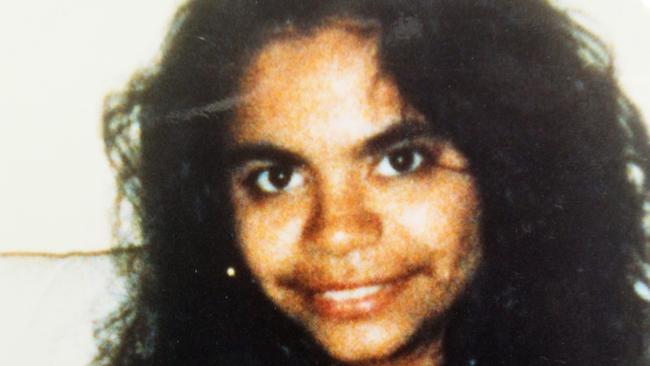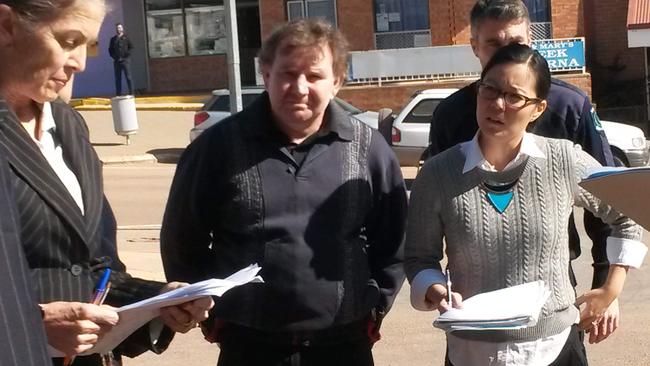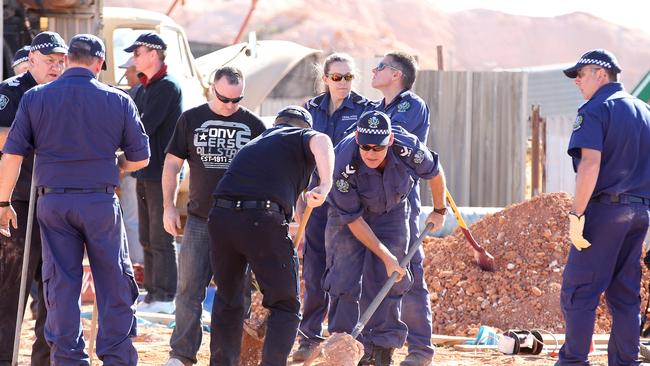Coober Pedy man Nikola Novakovich found not guilty by Supreme Court judge of the murder of Karen Williams in 1990
THE cold case murder of Karen Williams remains an unsolved mystery after the Supreme Court acquitted the long-time prime suspect of the 1990 crime.

SA News
Don't miss out on the headlines from SA News. Followed categories will be added to My News.
THE cold case murder of Karen Williams remains an unsolved mystery after the Supreme Court acquitted the long-time prime suspect of the 1990 crime.
On Thursday, Nikola Novakovich walked from the Supreme Court a free man having been found not guilty of murdering Miss Williams at Coober Pedy — and also being acquitted of the alternate charge of manslaughter.
An audible gasp went up from Miss Williams’ family, who were in the gallery of the court, as Justice Tim Stanley handed down his long-awaited verdict.
Justice Stanley, who heard the trial in the absence of a jury, has been deliberating on the case — much of which remains from suppressed from publication — since May this year.
In his written verdict, he concluded there was evidence inferring Mr Novakovich had “an involvement” in Miss Williams’ death and the disposal of her body.
However, he ruled, that did not amount to proof he had killed her.
Mr Novakovich smiled and shook hands with his legal team as he left the dock and said nothing to the media as he climbed into a cab outside the Sir Samuel Way building.
As he left, a distraught member of the Williams family yelled Novakovich was “still being protected by white people”.
Outside court Miss Williams’ brother, Kym, expressed disbelief over the verdict.
“Ten seconds, that was, after waiting 20-odd years — a 10-second verdict, just like that,” he said.
“How do you guys think we feel?”
Family friend Lavene Ngatokorua said Miss Williams’ loved ones were struggling to express their feelings after the long wait and short court hearing.
“There’s nothing we can say, really ... we’re not happy, this just means we haven’t stopped our grieving,” she said.
“We will continue to think about where Karen is, we want her back.”.
Mr Novakovich’s solicitor, Stephen Ey, expressed his sympathies to the Williams family.
“It’s terribly distressing that they have lost their family member — but he was not the culprit ... he has been exonerated,” he said.
“He’s very relieved, obviously ... he can now get on with his life, which has been on hold obviously since he got arrested.”

Miss Williams’ disappearance in 1990 is one of South Australia’s most infamous cold cases, prompting repeated and intensive searches of mine shafts in and around the town.
Her body has never been recovered.
At trial, prosecutors alleged Mr Novakovich raped and killed Miss Williams, 16, because she had witnessed him and another man robbing an opal miner just days earlier.
A witness claimed that when Mr Novakovich raped her, years after Miss Williams’ disappearance, he called her “Karen” and admitted responsibility for her death.
Another witness claimed Novakovich asked him if DNA could be sourced from a body after 20 years and, when told it could be, confessed to the crime.
Novakovich leaves court a free man as Miss Williams' family yells "still being protected by white men". @theTiser pic.twitter.com/bWs4ztWe8W
— Sean Fewster (@SeanFewster) August 18, 2016
However, a former Aboriginal healthcare worker claimed one of her patients made a deathbed confession that he was the murderer.
Defence counsel, meanwhile, asserted the prosecution’s key witness — Mr Novakovich’s former friend, Aleksander Radosavljevic — murdered Miss Williams.
They insisted the witness accounts were inadmissable, conflicting and irreconcilable.

In his written verdict, Justice Stanley said “the majority of witnesses laboured under difficulty” trying to give evidence “about events which occurred many years ago”.
He said Mr Novakvich was “at significant forensic disadvantage” compared to other accused persons.
“Particularly in a town like Coober Pedy, where there has been much discussion over many years about circumstances surrounding the disappearance of Karen Williams, there is a risk that such discussions have contaminated recollections,” he said.
He said that “unreliability”, coupled with “the effluxion of time”, made it difficult to make findings of fact about the prosecution case, “much” of which “does not make sense”.
While Justice Stanley accepted prosecutors had proved, beyond reasonable doubt, that Miss Williams is dead, he was not satisfied they had proven Mr Novakovich to be her killer.
He said Mr Radosavljevic’s evidence, on which their case rested, was “unimpressive, unreliable and contradictory” as he “kept changing his story”.
Though prepared to infer statements made, by Mr Radosavljevic and Mr Novakovich, “indicate an involvement” by the duo in Miss Williams’ death and the disposal of her body.
He ruled “that is not proof the accused killed her” sufficient to warrant guilty verdicts.
He said that, for many reasons, he had “reasonable doubt as to whether the accused killed Karen Williams as alleged on the prosecution case, or at all”.
Outside court, Ms Ngatokorua praised the efforts of SA Police, Major Crime detectives and court staff for investigating the case and conducting the trial.
“We don’t understand the law but we know the people involved in the case have really done a fantastic job,” she said.
“They put a lot of effort in, but it doesn’t stop for us ... it continues, and we are really disappointed.
“Everyone involved in the search for Karen will continue (looking for her).”
Detective Inspector Greg Hutchins said police did not consider the case to be closed.
“The family are obviously very disappointed with the verdict — they have suffered trauma, as all victims of homicide do,” he said.
“They are disappointed, and seek to have their daughter, their sister, returned.
“We do not consider the case closed and will continue (to see) opportunities to recover Karen.”
Mr Ey said Mr Novakovich was grateful to his legal team and his barrister, Marie Shaw QC.
“It (the verdict) just shows the judicial system works ... we were quietly confident (of an acquittal),” he said.


